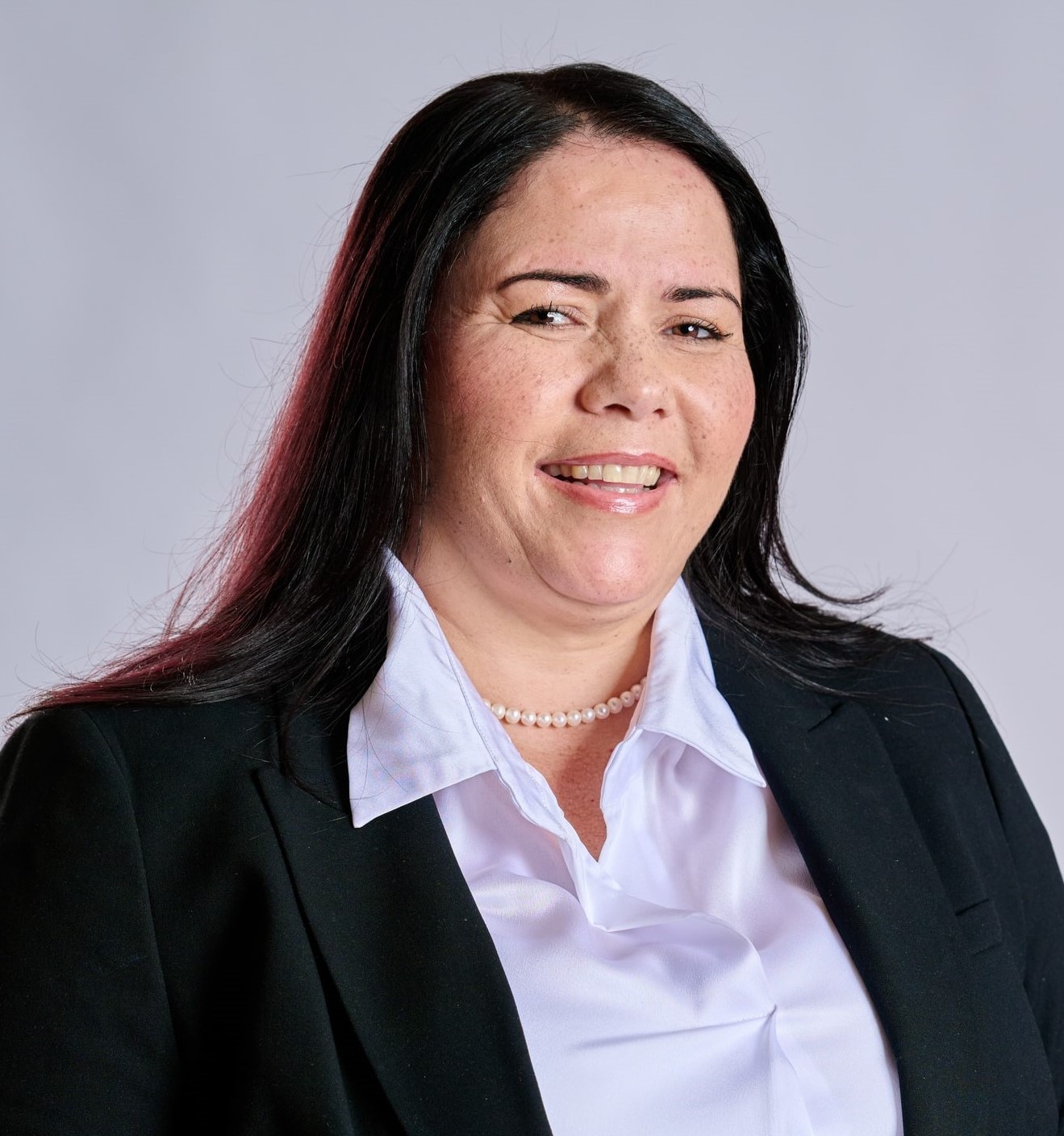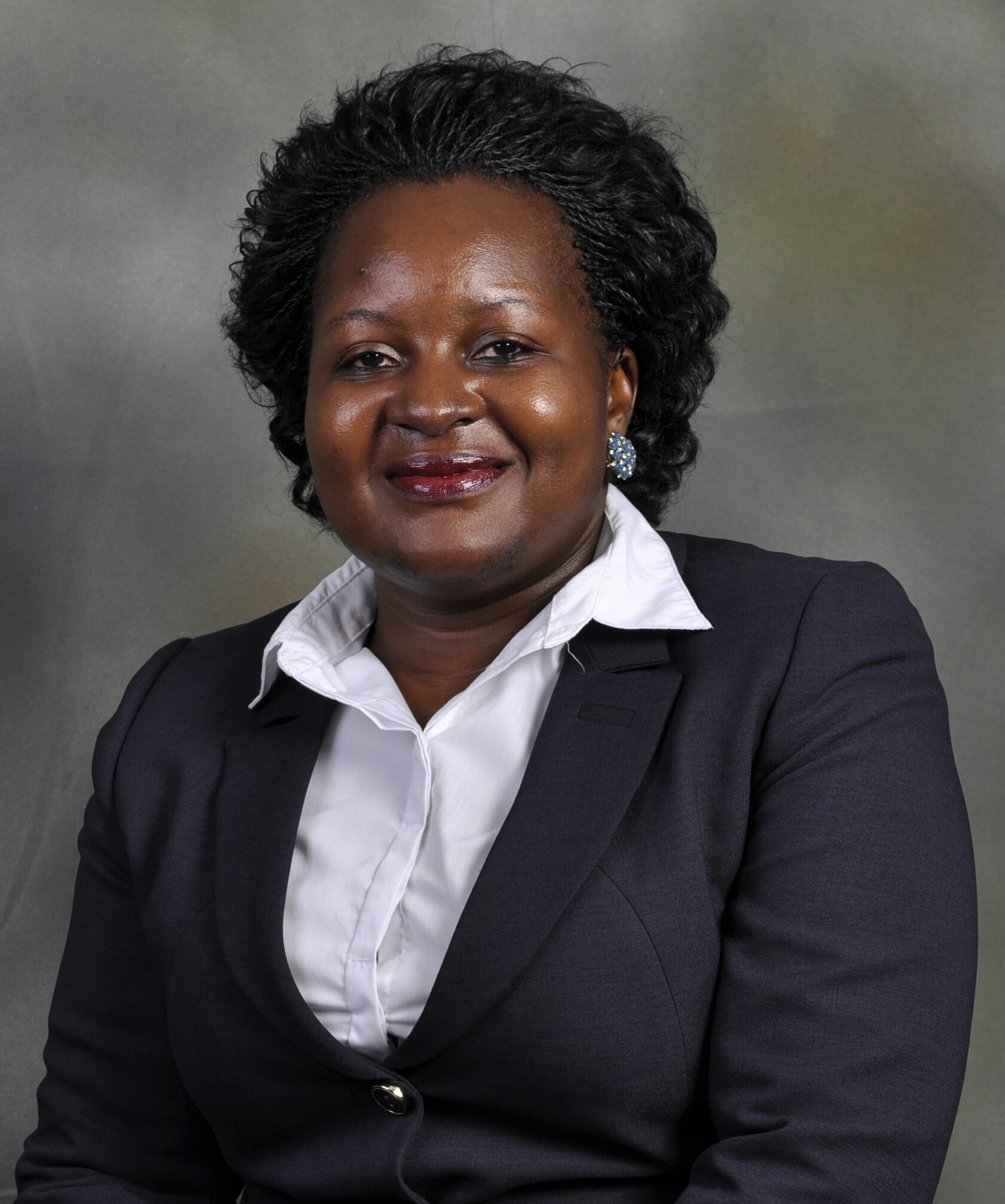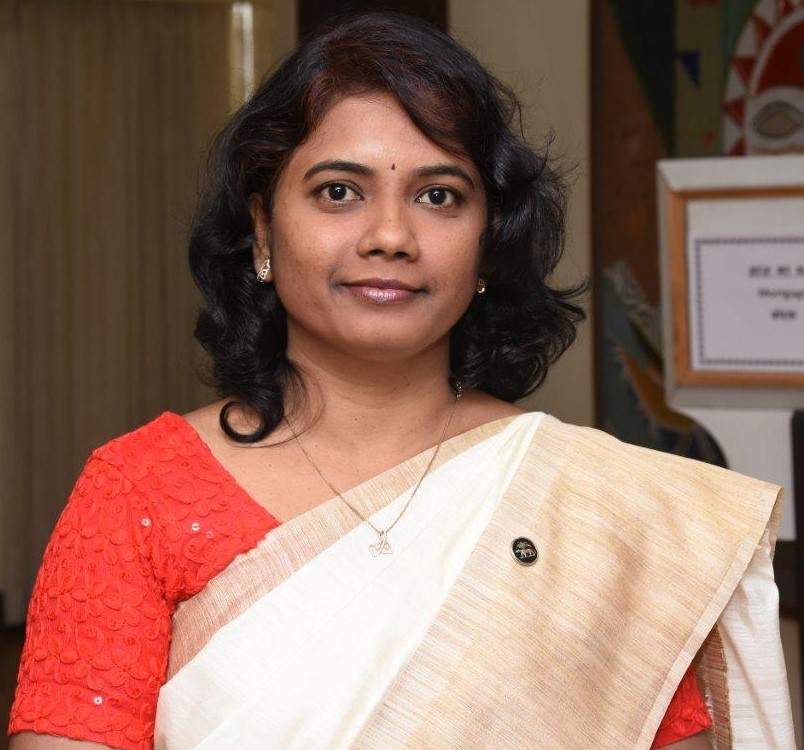AGENDA
Leading experts from across the suptech ecosystem contributed to SupTech Week by sharing innovations and insights, leading sessions, and showcasing case studies and solutions. In addition to the virtual forum, in-person roundtables took place in New York City.
Content Partner

Speakers

Alessandra Perrazzelli





Minerva Tantoco
City Strategies
Former first CTO, City of New York and CEO

Michelle Doyle-Lowe
Central Bank of Barbados
Deputy Governor

In Person NYC
All displayed times are in eastern time
- Mon, 9 Dec
- Tue, 10 Dec
- Wed, 11 Dec
- Thu, 12 Dec
- Fri, 13 Dec
- NYC - Mon, 9 Dec
- NYC - Tue, 10 Dec
- NYC - Wed, 11 Dec
- NYC - Thu, 12 Dec
Welcome to SupTech Week!
We will set the stage for SupTech Week 2024, highlighting the mission and vision of suptech’s evolving role in shaping the future of financial supervision. Attendees will learn about the transformative impact of technology on the supervisory landscape shaping inclusive, sustainable, accountable, transparent and resilient financial sectors worldwide.

Drew Propson
World Economic Forum
Head, Technology and Innovation in Financial Services

Simone di Castri
Cambridge SupTech Lab
Co-Head

Alessandra Perrazzelli
Banca d’Italia
Deputy Governor

Elizabeth McCaul
European Central Bank
SupTech Expert & Former Member of the Supervisory Board
State of SupTech 2024
During this session the Cambridge SupTech Lab will present the State of SupTech Report 2024. A panel will follow you to discuss recent advancements, emerging trends, and major milestones. We will highlight current adoption and implementation strategies, organisational models, and suptech tools development strategies, while discussing the effectiveness and challenges of suptech applications across various supervisory areas and their impact on financial supervision.

Bryan Zhang
Cambridge Centre for Alternative Finance
Executive Director

Kalliopi Letsiou
Cambridge SupTech Lab
Researcher

Samir Kiuhan-Vasquez
Cambridge SupTech Lab
Head of Research & Intelligence (Interim)

Fatima Abukar
Financial Conduct Authority
Principal Advisor, Responsible AI and Data

Douglas Araujo
Bank for International Settlements
Economist

Douglas Arner
University of Hong Kong
Kerry Holdings Professor in Law
AI beyond the hype
We’ll go beyond the current hype to explore the nuanced distinctions between various technologies falling under the banner of Artificial Intelligence (AI). Under the theme ‘Navigating Real-World Opportunities and Implications in AI’, our guest will share expert insights on how predictive analytics can forecast trends, prescriptive models can guide decision-making, and generative AI can create innovative solutions. Whether you’re a department head, tech enthusiast, or simply curious about AI, this keynote address will provide clarity and inspire thoughtful engagement with these transformative technologies.

Minerva Tantoco
City Strategies
Former first CTO, City of New York and CEO

Jermy Prenio
Financial Stability Institute
Principal Advisor
AI tools for supervision: ML models, GenAI systems, and beyond
Focusing on the future of financial supervision in the age of AI, this discussion will highlight the challenges and innovative solutions that lie ahead. We will delve into the transformative role of AI-powered suptech within financial authorities to enhance regulatory oversight, risk assessment, and compliance monitoring, promoting transparency and trust in the financial system. Our expert panel will examine real-world case studies and explore how machine learning, generative systems, and other AI algorithms can analyse structured and unstructured datasets to identify emerging risks, streamline reporting processes, and foster more informed decision-making.

Tuomas Ritola
Finnish Financial Supervisory Authority
Chief Specialist

Abhishek Chaudhary
Reserve Bank of India
Manager

Skunpoj Thanarojsophon
Bank of Thailand
Assistant Director

Diana Zaig
Office of the Superintendent of Financial Institutions Canada
Director, Advanced Analytics

Vincent Lee
Bank Negara Malaysia
Data Analytics Manager

Abhisekh Rana
Cambridge SupTech Lab
Senior Data Scientist
AI ethics and governance in financial supervision: building trust and accountability
In an era where AI rapidly transforms financial supervision, ensuring ethical and accountable AI use has become paramount to safeguarding public trust and promoting transparency. This panel will bring together thought leaders from law, policy, technology, and regulatory bodies to examine the role of AI governance frameworks in financial oversight, focusing on how these frameworks can help build trust and drive accountability. Through discussion on regulatory best practices, legal frameworks, and practical approaches, the session aims to address both the challenges and solutions to ethical AI deployment in financial supervision.
The session will explore the ethical and data governance challenges posed by AI-powered systems in financial supervision. Attendees will hear about examples of regulations such as the EU AI Act, data governance considerations, and the role of ethical AI in building trust in AI-powered systems. The need for ethical frameworks will be explored, along with how to achieve transparency, accountability, and explainability of AI outputs.

Kalliopi Letsiou
Cambridge SupTech Lab
Researcher

Iota Nassr
Organisation for Economic Co-operation and Development
Economist

Perttu Korhonen
Qatar Financial Centre Regulatory Authority
Director, Financial Analysis and Innovation

Dr. Till Klein
Applied AI Institute
Head of Regulation
Practical AI readiness for financial authorities
As reflected in the annual State of SupTech Reports, suptech is not a destination but an incremental journey from manual processes to increasingly tech-enabled, digitally transformed systems. As financial authorities begin this journey, many aspire to adopt more mature generations of suptech. To prepare for this, it is essential to assess organisational readiness across key areas so that financial authorities can create an operational environment that not only safeguards the integrity of the financial system but also encourages innovation and competition in an increasingly digital world.

Nathalie Lenehan
Cambridge SupTech Lab
Technical Program Manager

Simran Singh
Financial Conduct Authority UK
AI Lab Lead

Alyson Tellone
Microsoft
Senior Microsoft Azure Specialist for Public Sector

Dr. Sertaç Son
European Central Bank
Head of Division, Prudential Domain Services
Privacy-preserving algorithms for suptech:
seeing patterns in the dark
AUSTRAC, Australia’s AML/CTF financial intelligence unit (FIU), regulator and supervisor, supported the development of FinTracer, an algorithm that allows the tracing of the flow of funds across financial institutions without impinging on the privacy of individuals or breaching tipping-off rules. Professor Michael Brand, a developer of FinTracer, Vivenne Lawack, Professor at the University of the Western Cape, and Carl Herse, former National Manager of Intelligence Capabilities at AUSTRAC, will join Professor Louis de Koker to discuss privacy-preserving algorithms and their potential suptech uses.

Louis de Koker
La Trobe University
Professor of Law

Carl Herse
Kohei Consulting
CEO

Vivienne Lawack
University of the Western Cape
Deputy Vice-Chancellor and Professor of Law

Michael Brand
RMIT School of Computing Technologies
Adjunct Professor
Building supervisory powerhouses:
data strategies to drive actionable insights
This session, led by expert data strategists, examines how data strategies can transform supervisory frameworks to improve resilience, transparency, and decision-making. Attendees will gain a deep understanding of the innovative data solutions that support dynamic, responsive supervision in today’s evolving regulatory landscapes.

David Hardoon
Aboitiz Data Innovation
CEO

Roman Kovalenko
Reserve Bank of Australia
Chief Data Officer

Ramūnas Baravykas
Bank of Lithuania
Chief Data Officer

Sholthana Begum
Cambridge Judge Business School
Chair of the Technology Group of the Regulatory Genome Project
Banco de España:
Suptech evaluation and action plan
During 2023, Banco de España received a suptech evaluation by two of the most prominent international experts. This review had a holistic approach including governance, human development and international cooperation. This presentation will cover the main conclusions of the report and the resulting action plan. We will also take the opportunity to highlight the main elements of BdE´s suptech initiative.

Javier Tarancón
Banco de España
Head of the Information Analysis and SupTech Division

Pilar Puig
Banco de España
Head of the IT Risk Inspections Division
AI and Behavioral Science in Banking:
New Approaches to Culture Supervision
Culture is increasingly seen as a significant source of non-financial risks in banking which has led supervisors to seek innovative approaches to culture assessment and oversight. Advances in AI and behavioral science are unlocking new capabilities for measuring organizational behavior which are supporting practical applications for supervision. In this session, Starling’s Erich Hoefer joins Mirea Raaijmakers, a behavioral scientist who led the development of the Dutch central bank (DNB)’s supervision programme for behaviour and culture. They will discuss how data-driven insights can enhance traditional supervisory judgment and strengthen cultural risk management in banks globally.

Erich Hoefer
Starling Trust Sciences
Co-Founder & Chief Operating Officer

Mirea Raaijmakers
Independent Advisor
Culture Transformation and Behavioural Risk
Future-proofing supervision:
how AI is shaping supervisory skills and strategies
AI is transforming the financial sector and its supervision with deeper, proactive oversight and faster, data-driven decisions, strengthening financial resilience. Public officials now need skills that blend supervisory expertise with data science, machine learning, and digital ethics. Understanding AI’s limits and collaborating with technologists is essential to responsibly align AI with regulatory goals, especially in emerging market and developing economies. As supervisors embrace new technology, critical thinking skills, judgement and strong governance principles must remain at the core of their work.

Babak Abbaszadeh
Toronto Centre
President & CEO

Francesca Hopwood Road
BIS Innovation Hub
Head of London Centre

Marcus Lim
Monetary Authority of Singapore
Assistant Managing Director – Banking and Insurance
Harmonising Data for SupTech:
Models, Schemas, and Ontologies
Explore the critical role of data schemas in modernising financial supervision, focusing on innovations that enhance data flow, transparency, and regulatory efficiency. Join us to understand how structured data frameworks are driving inclusive growth, competition, and security in financial supervision, setting new standards for industry-wide innovation.

Robert Wardrop
University of Cambridge
Founder & CEO, RegGenome

Xavier Foo Hoong Leong
Securities Commission Malaysia
Head of Data Science

Jane Gavronsky
FINOS
Chief Operating Officer

Carmen Barandela
Bank of England
Senior Manager, RegTech, Data & Innovation

Lesly Goh
World Bank
Senior Technology Advisor
Rethinking financial data: leveraging gender disaggregation for greater impact
Explore with us the transformative potential of supply-side gender-disaggregated data (SGDD) in building more inclusive and equitable financial systems. By periodically gathering SGDD through regulatory reporting, financial supervisors can uncover gender-specific trends that hinder progress in financial inclusion and consumer protection. Supported by reliable data, these insights enable stakeholders across the financial ecosystem to make strategic decisions that address identified market failures and risks while capitalizing on overlooked opportunities. Panelists will address challenges such as ensuring data accuracy and security, managing and consolidating large volumes of data, and effectively integrating data across institutions to create a comprehensive view of gender dynamics in finance. They will also discuss how technology—and suptech in particular—can act as a critical enabler in overcoming these challenges and realising the full potential of SGDD.

Tatiana Alonso Gispert
CGAP
Senior Financial Sector Specialist

Jill Lagos Shemin
EMTECH
Head of Policy

Moïse Bigirimana
National Bank of Rwanda
Manager, Financial Inclusion and Education

Ines Paez
Superintendencia de Bancos de la República Dominicana
Director, Department of Innovation and Financial Inclusion
Practical Steps to
Advancing RegTech & SupTech Concurrently
This session will focus on steps that both the public and private sectors can take to advance RegTech and SupTech simultaneously. Experts will discuss strategies for fostering collaboration and leveraging technology to enhance compliance and financial oversight. It will also highlight opportunities for scaling RegTech and SupTech solutions.

Curtis Matlock
Proto
CEO

Deborah Young
The RegTech Association
CEO

Luay Gadallah
Eastnets
Chief Technology Officer

Drew Propson
World Economic Forum
Head, Technology and Innovation in Financial Services
Innovative edge:
unlocking skills and personal growth
Join us for an inspiring and insightful session designed to highlight key areas of focus for women leaders navigating the world of innovation and leadership. This engaging session will include personal experience sharing, key insights on business skills and personal development, and firsthand accounts from women leaders. You will walk away with a list of resources to enhance your skills and expand your network for your own innovation journey ahead.

Shelley Anderson
Alliance for Innovative Regulation
Program Director

Elizabeth Ingerfield
Women’s World Banking
Leadership & Diversity Manager

Batchimeg Batbold
Financial Regulatory Commission of Mongolia
Director, Digital Sandbox Unit

Emma Haiyambo
Bank of Namibia
Director, Research and Financial Sector Development

Sharon-Rose Delali Lithur
Bank of Ghana
Innovation Promotion Officer
Leadership Insight
Tune in as Leonie Dunn shares her vision on ‘Redefining Financial Oversight: Fusing Human Insight and Tech Innovation’ and Pia Bernadette Roman Tayag outlines insights from Bangko Sentral ng Pilipinas.

Leonie Dunn
Bank of Namibia
Deputy Governor

Pia Bernadette Roman Tayag
Bangko Sentral ng Pilipinas
Assistant Governor and Chief Sustainability Officer
Tackling climate risk
Learn how we can assess physical climate risk by addressing the latest developments in data collection and supporting tooling that can help authorities push for better physical risk capture. We will explore how to use data to make green finance tangible and demonstrate successful implementations such as a Digital Twin for physical climate risk.

Dr. Entela Benz-Saliasi
Intensel Limited
CEO

Dr. Sean Carmody
Australian Prudential Regulation Authority
Executive Director, Policy and Advice Division

Marc Reinke
De Nederlandsche Bank
Head, Sustainable Finance Office

Kenneth Gay
Monetary Authority of Singapore
Chief FinTech Officer & Executive Director, Enterprise Knowledge Department
Suptech-powered consumer protection supervision
A dive into how suptech can strengthen financial consumer protection supervision. This panel discussion will provide financial authorities with actionable insights to integrate cutting-edge technologies into their supervisory processes. By focusing on specific use cases, the session will foster an insightful discussion on key areas where suptech can make a significant impact.

Miles Larbey
OECD
Head of Financial Consumer Protection, Education & Inclusion Unit

Rochelle Tomas
Bangko Sentral ng Pilipinas
Director, Consumer Protection and Market Conduct Office

Tomas Castaneda
Superintendencia Financiera de Colombia
Head of SupTech and Digital Transformation Program

Friderica Widyasari Dewi
Indonesia Financial Service Authority
Chief Executive, Market Conduct Supervision, Education and Consumer Protection
SupTech-Enhanced Cyber Risk Supervision
Suptech is transforming cybersecurity supervision for financial authorities. We will address the rising complexity of cyber threats and discuss the latest advancements in suptech that enhance cyber risk monitoring, real-time threat detection, and resilience-building within financial systems. The session will delve into practical applications of AI and data science, showcasing how these technologies are strengthening cybersecurity and advancing financial supervision. It will also provide strategic insights into embedding suptech within supervisory systems to strengthen cyber resilience across regions and institutions.

Leslye Sihuay
Cambridge SupTech Lab
Senior SupTech Specialist

Aristides Cavalcante
Central Bank of Brazil
Head of Strategic Management and Specialized Supervision Department

Beju Shah
BIS Innovation Hub
Head of the Nordic Centre

Justin Herring
Mayer Brown
Partner
Suptech: transforming insurance supervision
Explore the transformative role of suptech within insurance supervision, particularly in areas such as fraud detection, risk management, and regulatory compliance. This session will showcase how data and AI-powered tools help supervisory authorities manage the unique challenges presented by the insurance sector. Attendees will gain insights into best practices for implementing suptech solutions tailored to insurance, from pilot phases to scalable applications.

Francisco Campos
Insurance Superintendency of the Dominican Republic
Intendant

Andres Lehtmets
InsurTech for Good
Founder

Arianna Brina
EIOPA
InsurTech Expert, Consumer Protection Department

Nydia Remolina
Singapore Management University
Assistant Professor of Law
State of SupTech in Asia Pacific
The Asia-Pacific region is at the forefront of digital transformation, with diverse financial ecosystems presenting unique opportunities and challenges. Suptech offers supervisors innovative tools to enhance supervision, address market complexities, and support sustainable growth. This session will explore how suptech can be tailored to the region’s varied markets, the role of regional collaboration in overcoming shared challenges, and the potential of emerging technologies to drive smarter, more agile oversight.

Shashank Singh Shekhar
Reserve Bank of India
Assistant General Manager, Advanced Supervisory Analytics Group, Department of Supervision

Lisette Cipriano
Asian Development Bank
Principal Digital Finance Specialist

Novita Bachtiar
Otoritas Jasa Keuangan
Deputy Director, Digital Finance Innovations Unit

Lyn Javier
Bangko Sentral ng Pilipinas
Assistant Governor
State of SupTech in the Arab Region
The financial ecosystems in the Arab region are undergoing significant transformation, driven by innovation and digitalization. In this context, suptech offers regulators powerful tools to enhance oversight, protect consumers, and adapt to complex market dynamics. This session, featuring insights from regulators and the Arab Monetary Fund, will explore the opportunities and challenges of piloting and scaling suptech solutions in the region. Discussions will focus on leveraging regional cooperation to address common barriers, aligning suptech solutions with local market needs, and fostering innovation while maintaining financial stability. Discover how suptech can empower supervisors in the Arab region to navigate a rapidly evolving financial landscape with resilience and efficiency.

Nouran Youssef
Arab Monetary Fund
Senior Financial Sector Specialist

Lobna El Bayar
Central Bank of Egypt
Assistant Sub-Governor for Information Technology

Tushar Singh Bora
Central Bank of the UAE
Senior Manager, Fintech Development Digital Transformation and Infrastructure

Mohammed A. Alhamzah
Saudi Central Bank
Supervision Transformation Office Director

Ghadir Alansari
Central Bank of Kuwait
Head of FinTech Development & Innovation
Unlocking Africa’s suptech potential
As financial landscapes in Sub-Saharan Africa evolve, financial authorities face unique challenges in overseeing complex, dynamic markets. Suptech has emerged as a transformative solution, empowering authorities with the tools to improve sector-wide monitoring, protect consumers, and streamline supervisory processes. This panel brings together African regulators to discuss critical pathways for integrating suptech, from initial diagnostic assessments to scalable deployment strategies. We’ll explore best practices tailored to Africa’s needs, ways to address risks and challenges they face without suptech, and innovative, cost-effective models that make suptech accessible despite resource constraints. Join us for an insightful discussion on how suptech can pave the way for enhanced financial supervision across Africa.

Juliet Ongwae
Cambridge SupTech Lab
Senior SupTech Specialist

Adama Diakite
West-African Monetary Institute
Economist

Prester Mbiwa
The SACCO Societies Regulatory Authority (SASRA) of Kenya
Technology, Digital Finance & Data Analytics Lead

Irene Venter
Bank of Namibia
Deputy Director, Oversight and Policy Research Division

Khadijah Kishimba
Bank of Tanzania
Acting Manager for Financial Consumer Protection

Milly Nalukwago Isingoma
Bank of Uganda
Director, Statistics
Scaling suptech in the European Union
This session will explore the main challenges in scaling up the adoption of suptech within the EU. The discussion will focus on how suptech adoption and development is rooted in the current supervisory framework. It will consider the integration of the EU supervisory and National Competent Authorities (NCAs) schema to analyse gaps and advantages within cross-border collaboration in various jurisdictions to enhance scalability. In detail, the session will examine the challenge of designing an EU-level blueprint for suptech and discuss data strategies that consider the heterogeneous adoption of suptech among the different NCAs in the EU.

Nico Lauridsen
EUI- Florence School of Banking and Finance
Research Associate

Luis Garcia
European Banking Authority
Team Leader, SupTech & AI

Konstantin Bottenberg
European Central Bank
Team Lead, Supervisory Technologies

Daniela Bagnaschi
Malta Financial Services Authority
Head, Data Management and Business Intelligence
Interactive Workshop:
The Case for an Africa SupTech Accelerator
This interactive workshop is open to representatives from African financial authorities.
As you know, the supervisory technology market in Africa has been unable to provide the level of oversight needed to meet the booming fintech market because regulator-focused innovation is very nascent in Africa – despite growing regulator demand. The Gates Foundation has a concept for an accelerator that will spark growth in supply and demand to meet local needs, thereby infusing innovation in the fintech oversight ecosystem in Africa. The concept is in the early stages of development and we are interested in your input and opportunities for collaboration to ensure the accelerator meets your needs. In this session, we plan to discuss:
- What resonates with and what is missing from our argument?
- What use cases would appeal to you?
- How can this be a sustainable model?
- General questions/concerns/advice you have given your expertise/perspective.

Anna Wallace
Bill and Melinda Gates Foundation
Senior Program Officer for Regulatory and Consumer Protection Technologies

Juliet Ongwae
Cambridge SupTech Lab
Senior SupTech Specialist

Hina Syed
Intentional Futures
Associate Director of Social Impact

Jen Cupp
Intentional Futures
Advocacy and Communications Strategist

Mira Patel
Intentional Futures
Digital Strategy & Innovation Strategist
Suptech capacity building and cross-border collaboration:
the EU Supervisory Digital Finance Academy experience
The session will focus on the interplay between capacity building and suptech development, emphasising the crucial role of cross-border collaboration among National Competent Authorities (NCAs). Specific examples will be shared to demonstrate how cross-border collaboration can be essential in overcoming the challenges related to suptech adoption. The discussion will draw on the experiences of the EU-Supervisory Digital Finance Academy (EU-SDFA), which provides capacity-building training on suptech to its 37 participant NCAs from 26 EU member states. It will empower participants to acquire knowledge and collaborate on projects that develop proof-of-concept suptech initiatives, which could potentially evolve into cross-border projects.

Nicola Bilotta
EU-Supervisory Digital Finance Academy
Coordinator

Giuseppe Sciascia
European Commission – DG REFORM
Policy Officer

Iman van Lelyveld
De Nederlandsche Bank
Head of Department, Data Science Hub

Marine Kravoska
Latvijas Banka
Head, FinTech Supervision Department
The cloud as suptech enabler:
Accelerating innovation and efficiency
The cloud has emerged as a critical enabler for suptech, empowering financial authorities to enhance their operations through scalability, agility, and advanced analytics. This session will explore how cloud technology is transforming suptech applications, enabling real-time data processing, fostering innovation, and addressing challenges like data security and regulatory compliance. Speakers will share insights from technology providers and supervisors, highlighting practical use cases and collaborative efforts to unlock the full potential of cloud solutions for financial oversight. Attendees will gain a comprehensive understanding of cloud’s role in advancing suptech, the opportunities it presents, and the challenges of ensuring security, data privacy, and compliance in a cloud-first environment.

Laurent Domb
AWS
Chief Technologist, Worldwide Federal Financial Services

Anne Leslie
IBM
Cloud Risk & Controls Leader Europe

Eugene Teves
Bangko Sentral ng Pilipinas
Managing Director & Chief Information Officer

Philippa Martinelli
Cambridge Centre for Alternative Finance
Centre Affiliate
Building effective online
dispute resolution ecosystems
This session will explore innovations which support effective grievance redressal using online dispute resolution (ODR) as digital public infrastructures (DPIs) scale around the world, using examples from India and Brazil.

David Porteous
Integral: Governance Solutions
Founder

Maria Luciano
Centre for Digital Public Infrastructure
Project Manager

Sachin Malhan
Agami
Co-Founder
How to organise data driven work
This session will explore how to best organise the transformation to a more data-driven organisation. Attendees will gain insights into what different models of organisation have been pursued at different organisations, ensuring staff competency, implementing the PoC/data science projects and more.

Lukasz Kubicki
European Central Bank
Head of SupTech

Lauri Jantunen
Bank of Finland
Head of Data Strategy

Helen Packard
Financial Conduct Authority
Head of Market Oversight Data & Intelligence

Iman van Lelyveld
De Nederlandsche Bank
Head of Department, Data Science Hub
Improving visibility across supervisors:
workflow management
This fireside chat-style session will surface and describe some of the practical needs of supervisors for the right tools to better manage their supervision processes, exploring new tools that address this need. As data often holds center stage, the management needs of supervisors must be addressed as well, such as streamlining workflows, creating efficiencies and better collaboration, and improving overall visibility across supervisors, and even multi-regulator collaboration.

Jill Lagos Shemin
EMTECH
Head of Policy

Michelle Doyle-Lowe
Central Bank of Barbados
Deputy Governor

Kevin Moore
Serac Ventures
Founder
Suptech – powered digital payment supervision
In our digital age, where global connections are more intertwined than ever, supervisory authorities face complex challenges in overseeing payment systems, from instant and cross-border payments to the role of digital currencies. This session will examine how suptech, driven by AI, can transform risk supervision in the payments space, equipping agencies with tools for real-time monitoring, adaptive compliance, and predictive risk analytics. Panelists will also provide forward-looking insights into the future of digital payments supervision, discussing the evolving landscape, emerging challenges, and anticipated advancements in AI that are set to shape the next era of financial regulation and oversight.

Anthony Gavin
Independent SupTech Specialist and Strategy Advisor

Carlos León
Financial Network Analytics (FNA)
Director of Central Banks and Financial Market Infrastructures Solutions

Peter Wierts
Bank for International Settlements
Senior Economist

Ana Maria Prieto
Central Bank of Colombia
Head of Payment System Department
Scaling-Up SupTech:
Donor, Supervisor, and Vendor Perspectives
Join leaders from the Bill & Melinda Gates Foundation, the Philippines government, and Proto to learn about their coordinated contributions to a new shared service model for scaling SupTech beyond pilots into multi-agency deployments. Discover what is possible when funding, legislative frameworks, and private sector innovation align to deliver enduring social impact. This model is a spotlight innovation of the SupTech Industry Group membership, supported by the Cambridge SupTech Lab.

Curtis Matlock
Proto
CEO

Anna Wallace
Bill and Melinda Gates Foundation
Senior Program Officer for Regulatory and Consumer Protection Technologies

Mary Jean Pacheco
Department of Trade and Industry of the Philippines
Undersecretary

Simone di Castri
Cambridge SupTech Lab
Co-Head
Strengthening supervision through
suptech in Latin America
Please note that this session will be facilitated in Spanish.
This panel brings together Latin American regulators to share strategic insights from their own experiences with suptech, highlighting key milestones and lessons learned. It will explore the value of regional collaboration, examining how shared knowledge and coordinated efforts can address common supervisory challenges. With a forward-looking approach, panelists will also discuss the role of data analytics and emerging technologies—such as Generative AI—in shaping a resilient, tech-driven future for financial oversight across Latin America.

Diego Herrera
Inter-American Development Bank
Financial Markets Lead Specialist

Bernardita Piedrabuena
La Comisión para el Mercado Financiero de Chile
Vice President

Jorge Mogrovejo
Superintendencia de Banca, Seguros y AFP del Perú
Deputy Superintendent of Banking and Microfinance

Fernando Ávila
Banco de México
Director, Financial Systems Information
Suptech solution demos from FT Solutions and FNA
Learn how FT Solutions assists AML/CFT supervisors worldwide to enhance their effectiveness and efficiency by empowering a risk-based approach to supervision with technology. FNA, a global leader in operationalising suptech for central banks and authorities, will present solutions for tackling consumer scams and fraud with graph AI.

Carlos León
Financial Network Analytics (FNA)
Director of Central Banks and Financial Market Infrastructures Solutions

Emanuele Cibrario
Financial Transparency Solutions
AML/CFT Risk Consultant
Solutions showcase: API Innovation Hackathon
The adoption of API standards, enabling tools and open source software can play a critical role in driving inclusive growth, fostering competition and innovation, and enhancing financial inclusion. During this session, participants in the API Innovation Hackathon will showcase their solutions, demonstrating their potential to solve real-world challenges faced by financial authorities worldwide. The session will include opportunities for Q&A, allowing the audience to delve deeper into the technical aspects and applications of the presented solutions, and contributing to the voting for winning teams.

Matt Grasser
Cambridge SupTech Lab
Co-Head
Three essential suptech solutions for
financial consumer protection
This session will explore the development of suptech tools in Ecuador, the Middle East and India via the Cambridge SupTech Lab’s Application Incubation program. Attendees will gain insights into: API and transactional analysis development for compliance monitoring; AI-chatbot, case management and analysis for complaints handling; and web scraping and sentiment analysis for consumer fraud detection.

Nathalie Lenehan
Cambridge SupTech Lab
Technical Program Manager

Ishan Srivastava
Matellio
Senior Business Analyst

Ashok Bhati
Matellio
Project Manager

Kevin Rejko
Winnow Tech
Senior Engineer

Chris Guess
Winnow Tech
Co-Founder and CTO

Muhammad Gouda
Link Development
Head of Software Engineering

Marwan Khalil
Link Development
Principal Project Manager
Fuelling innovation through collaboration:
reflections from the BIS Innovation Hub SupTech TechSprint
In October, representatives from over 30 financial authorities formed mixed discipline teams, comprising supervisors, data scientists, subject matter experts and technologists, to develop solutions to a spectrum of suptech use cases: This session will discuss some of the ideas developed at this event, including how supervisors can harness the potential of Gen AI & LLMs, how authorities can better understand and assess AI models being used by financial authorities, how digital twins can assist real-time monitoring, simulation and analysis to support financial stability, how novel data sources and nowcasting techniques can be used to support supervision and financial stability and how collaboration among financial authorities can be improved to avoid the duplication of effort and help suptech solutions scale across jurisdictions.

John Yeo
BIS Innovation Hub
Advisor

Diana Zaig
Office of the Superintendent of Financial Institutions Canada
Director of Advanced Analytics

Dan Wunderli
Swiss Financial Market Supervisory Authority (FINMA)
Head of the Data Innovation Lab

Kevin Tsui
Hong Kong Monetary Authority
Manager

Rachel Pierce
US Treasury – Office of the Comptroller of the Currency
Financial Technology Policy Specialist

Zooey Bossert
De Nederlandsche Bank
Data Scientist
Showcasing TechSprint successes:
digital payment fraud in West Africa
This session will highlight key outcomes from the Alliance for Innovative Regulation’s TechSprint focused on detecting and combating digital payment fraud in West Africa. Attendees will gain insights into the background and objectives of the TechSprint and innovative solutions developed by participant organisations, including solution demonstrations followed by a Q&A segment.

Grace Mathebula
Alliance for Innovative Regulation
Program Manager

Ome Chukwuemeka
ZeroTen Technologies
Lead Developer and Founder

Osioke Ojior
One Percent Labs Ltd
Co-Founder & CEO

Adama Jarju
ProDetect
Co-Founder and Team Lead
Exploring NextGenAI –
program highlights and resources
This session, based on the Alliance for Innovative Regulation’s NextGenAI program, will serve as a comprehensive guide for attendees interested in understanding the evolving role of generative AI in financial regulation. Attendees will gain insights into the purpose and objectives of the NextGenAI Program; insights related to generative AI specific use-cases from the RoundTables; key outcomes from the program initiatives, including the Tech Showcase, Call for Papers, and Shared Learning, along with access to all related resources.

Mariama Jalloh-Heyward
Alliance for Innovative Regulation
Program Director

Nitya Malladi
Alliance for Innovative Regulation
Program Manager
Financial Inclusion TechSprint &
Market Abuse Surveillance TechSprint
Join Simran Singh from the Financial Conduct Authority and Lauren Cassells from FinTech Scotland for an interactive session on the 2024 Financial Inclusion and AI in Market Abuse Surveillance TechSprints. This session will provide a deep dive into how these flagship initiatives tackled pressing challenges in financial services, from improving access to financial products for underserved communities to deploying AI to enhance market abuse detection. Gain insights into the innovative solutions that emerged, the collaborative environment that fostered them, and the tangible impact of technology in creating a fairer, more inclusive financial ecosystem.

Simran Singh
Financial Conduct Authority UK
AI Lab Lead

Lauren Cassels
FinTech Scotland
Research & Innovation Programme Manager
API Innovation Hackathon – Awards Ceremony
Celebrate the solutions created during the API Innovation Hackathon and discover which teams are recognised for the most impactful and creative ideas. This ceremony will shed light on the importance of leveling the AI Readiness playing field through APIs, acknowledge the hard work of participants who have dedicated their expertise to developing a cutting-edge API builder for financial supervision based on open standards and tools. Attendees will gain insights into the winning projects and the criteria that set them apart in the competition.

Matt Grasser
Cambridge SupTech Lab
Co-Head

Muhammad Gouda
Link Development
Head of Software Engineering

Jochen Papenbrock
NVIDIA
Head of Financial Technology

Jane Gavronsky
FINOS
Chief Operating Officer

Parimal Kumar Shivendu
FinTech Department, Reserve Bank of India
Assistant General Manager
Shaping the future of financial supervision –
what’s next?
Wrap up SupTech Week 2024 by hearing from suptech leaders who will reflect on key insights and action points from the week. This discussion will highlight major takeaways, future priorities, and ongoing challenges in the field. Panelists will share their own exciting projects to be taken forward in 2025. Attendees will leave with a clear vision of the future direction of suptech and the collaborative efforts needed to drive further innovation in financial supervision.

Simone di Castri
Cambridge SupTech Lab
Co-Head

Maryam Haghighi
Bank of Canada
Director, Enterprise Data Science and Insights

Drew Propson
World Economic Forum
Head, Technology and Innovation in Financial Services

Francisco Duque
Superintendencia Financiera de Colombia
Deputy Director of Supervisory Methodologies and Corporate Governance
Please note that all New York convenings are by invitation-only sessions, limited to a maximum number of participants to ensure a highly interactive and impactful experience.
SupTech Week Evening Reception & Networking Session:
The Case for an Africa SupTech Accelerator
Join us for an engaging evening kicking off SupTech Week 2024, meeting peers and exploring the transformative potential of a SupTech Africa Accelerator.

Anna Wallace
Bill and Melinda Gates Foundation
Senior Program Officer for Regulatory and Consumer Protection Technologies

Jen Cupp
Intentional Futures
Advocacy and Communications Strategist
Please note that all New York convenings are exclusive, invitation-only sessions, limited to a maximum number of participants to ensure a highly interactive and impactful experience.
Hosted at the World Economic Forum NYC office
Opening SESSION
During the opening session, keynote speakers will share their insight and provide calls to action to accelerate the digital transformation of financial supervision. The SupTech Week hosts will lay out the day’s programme designed for global leaders to engage in meaningful dialogue to develop multi-stakeholder solutions that accelerate the digital future of financial supervision

Drew Propson
World Economic Forum
Head, Technology and Innovation in Financial Services

Matt Grasser
Cambridge SupTech Lab
Co-Head

Dr. Vijay Singh Shekhawat
Reserve Bank of India
Chief General Manager
Strengthening the Financial System:
Collaborative Approaches to Advancing RegTech and SupTech
This panel will explore current public and private sector efforts to advance regtech and suptech, and highlight opportunities for improved collaboration in areas of shared interest.

Hunter Sims
Cambridge Centre for Alternative Finance
Associate Director

Noel Guinto
Bangko Sentral ng Pilipinas
Director, Department of Supervisory Analytics

Laurent Domb
AWS
Chief Technologist, Worldwide Public Sector Federal Financial Services

Ed Probst
NASDAQ
Senior Vice President, Regulatory Technology

Kaitlin Asrow
New York State Department of Financial Services
Executive Deputy Superintendent, Research and Innovation
Breakout Roundtables & Group Discussions
Breakout roundtables will dive into discussion questions related to overcoming challenges that hinder effective collaboration, opportunities for cross-border and cross-industry knowledge exchange, and leveraging AI for advancements in regtech and suptech.
Advancing RegTech and SupTech for a
Stronger, Safer Financial System
This session will be recorded in the World Economic Forum studio and will be published for viewing during SupTech Week.
This session will explore how advancing regtech and suptech can strengthen the financial system by streamlining and improving compliance, oversight, and risk management. It will also examine the direct impact these innovations have on the end consumer, including enhanced security and more efficient services.

Julie Gerdeman
BNY
Managing Director Global Head of Data & Analytics

Jorge Mogrovejo
Superintendencia de Banca, Seguros y AFP del Perú
Deputy Superintendent of Banking and Microfinance

Hugh Son
CNBC
Banking Reporter
A supervisor’s journey:
supervisors’ and suptech ecosystem players’ roundtables
Through interactive roundtable exercises, supervisors will dive into mappings of a supervisor’s journey unpacking the processes, tools, techniques, and other resources leveraged by an individual within a supervisory authority to facilitate digital transformation and adoption of suptech in their work. Suptech ecosystem players will explore avenues and entry points for support and opportunities to bring their efforts and learnings to scale.
Hosted at Accenture
SupTech Week Reception:
Financial Supervision & Artificial Intelligence
Join us for a conversation on financial supervision and AI, meet world leading experts and connect with peers.

Venetia Woo
Accenture
Principal Director and the North American Regulatory Strategy Lead

Douglas Arner
University of Hong Kong
Kerry Holdings Professor in Law

Geetha Giddi
Reserve Bank of India
Deputy General Manager, Department of Supervision

Ivy Ou
Office of the Superintendent of Financial Institutions (OSFI)
Managing Director, Supervision Data and Analytical Insights
Please note that all New York convenings are exclusive, invitation-only sessions, limited to a maximum number of participants to ensure a highly interactive and impactful experience.
Hosted at Mayer Brown
Opening Segment:
Digital consumer protection day
During the opening segment, leaders will share their insight on accelerating efforts to advance digital consumer protection around the world and set the tone for a series impactful engagements throughout Digital Consumer Protection Day.

Anna Wallace
Bill and Melinda Gates Foundation
Senior Program Officer for Regulatory and Consumer Protection Technologies
Roundtable discussion:
Suptech powered consumer protection supervision
During this roundtable discussion, supervisors and ecosystem players will exchange actionable insights to integrate cutting-edge technologies into supervisory processes, and innovative to strengthen financial consumer protection frameworks at financial authorities around the globe.
From idea to prototype –
dispute resolution & data scraping
Supervisors and suptech vendors will present highlights and reflections from recent engagements focused on the development of financial consumer protection suite with social media and web scraping, sentiment analysis, topic modelling, and other machine learning-based analytics.

Nathalie Lenehan
Cambridge SupTech Lab
Technical Program Manager

Curtis Matlock
Proto
CEO

Dr. Kimmo Soramäki
FNA
CEO

Lejla Sarcevic
Winnow
CEO

Jamile Vallés
Superintendencia de Banca, Seguros y AFP del Perú
Head of Market Conduct Enforcement Department

Noel Guinto
Bangko Sentral ng Pilipinas
Director, Department of Supervisory Analytics
Innovation Rotation
This segment will provide attendees with the opportunity to learn from and engage with demos by suptech vendors showcasing real-life applications outlined during the previous panel discussion.

Curtis Matlock
Proto
CEO

Dr. Kimmo Soramäki
FNA
CEO

Lejla Sarcevic
Winnow
CEO
Mini-Design Sprint:
Advancing Financial Consumer Protection
This unique design sprint experience will allow attendees to apply key takeaways hands-on. Attendees will have the chance to vote for their preferred topic ahead of time, with options ranging from AI-powered consumer complaint analysis, real-time supervisory dashboards for consumer risk, supervisory technology for crypto assets and digital currency, and more.

Matt Grasser
Cambridge SupTech Lab
Co-Founder and Co-Head

Adam Scott
Consumer Financial Protection Bureau
Director of Digital Services

Jessica Schafer
Consumer Financial Protection Bureau
UX Design Lead
Please note that all New York convenings are exclusive, invitation-only sessions, limited to a maximum number of participants to ensure a highly interactive and impactful experience.
Interactive peer-learning visit at
the New York State Department for Financial Services
Supervisors attending SupTech Week are invited to a peer-learning visit at the New York Department of Financial Services. We will engage in an interactive discussion on stablecoins supervision, including the NYDFS & emerging frameworks along with regulatory considerations. The discussion will be led by:

Ken Coghill
NYDFS
Virtual Currencies, Deputy Superintendent

John Melican
NYDFS
Deputy Superintendent, Limited Purpose and Virtual Currency Trusts
Day 1
Welcome to SupTech Week
The session underscored the critical role of effective supervision in maintaining financial stability, emphasising that supervisors need the right tools and technology to navigate evolving market complexities. Elizabeth McCaul, former Member of the Supervisory Board of the European Central Bank, showcased Project Olympus, an integrated technology platform enabling data-driven decisions. Alessandra Perrazzelli, Deputy Governor of Banca d’Italia, stressed the need for global coordination, cooperation, and collaboration in AI regulation and supervision. Both speakers emphasised the importance of harmonised, integrated supervision, moving beyond intuition to data-driven approaches, with a vision of supervisors having comprehensive access to key information.
State of SupTech
The session unveiled findings from the Cambridge SupTech Lab’s third annual report, showcasing substantial growth in suptech adoption across global financial authorities. The presentation, delivered by Lab members Kalliopi Letsiou and Samir Kiuhan-Vasquez, highlighted the continued expansion of suptech adoption, with emerging markets steadily closing the gap with advanced economies. Financial authorities are diversifying their suptech applications, moving beyond traditional supervisory areas to address emerging risks like cyber threats and climate change. While there is increasing experimentation with advanced technologies, particularly AI and GenAI, early-generation technologies are still predominant. Strategic planning is a key enabler for suptech success, although persistent obstacles include limited technical expertise, data access coordination, and budget limitations. The session also noted the versatile approach of financial authorities, who blend in-house development with external vendors while identifying the need to embrace more innovative approaches for experimentation, like techsprints and innovation hubs. A panel discussion with the UK’s Financial Conduct Authority (FCA), BIS, and University of Hong Kong experts promoted responsible AI deployment, cross-border collaboration, and addressing the technology gap between economies.
Explore the State of SupTech Report 2024
AI Beyond the Hype
The discussion centred on AI as an enhancing tool for human intelligence, emphasising responsible implementation through data governance. Minerva Tantoco, the first CTO of the City of New York and CEO of City Strategies, introduced a framework of five elements — data, design, development, deployment, and decision-making — to ensure ethical AI use and protect human rights. Jermy Premio, Principal Advisor of the Financial Stability Institute, explored AI’s transformative potential in financial supervision and featured the need for intentional technological design. Both presenters stressed AI literacy across stakeholder levels, arguing that understanding AI’s mechanisms and appropriate usage is crucial. The key message was that AI systems must be powerful, responsible, and respectful of human rights while maintaining trust. The session underscored the importance of cultural and mindset shifts to enable AI to enhance supervisory quality effectively.
AI Tools for Supervision
The session showcased four innovative AI applications in financial supervision across multiple jurisdictions. The Reserve Bank of India presented machine learning tools for analysing supervisory returns and categorising meeting minutes based on Basel risk guidelines. Bank Negara Malaysia demonstrated natural language processing applications to detect suspicious activity in non-bank Money Service Providers and enhance cross-authority data integration. Furthermore, the Finnish Financial Supervisory Authority presented its innovative application of visual language models to analyse Sustainable Finance Disclosure Regulation (SFDR) documents. At the same time, Canada’s Office of the Superintendent of Financial Institutions showcased a retrieval augmented generation chatbot for processing unstructured documents. Finally, the Bank of Thailand presented a generative AI system that analyses financial contracts and loan data to assess debt relief eligibility through their data lake infrastructure.
The session spotlights that many effective AI solutions for supervision rely on classical machine learning and that human feedback is a key element in enhancing the targeting and performance of these models.
AI Ethics & Governance in Financial Supervision: Building Trust & Accountability
The session discussed the critical need for ethical frameworks and robust governance in AI implementation for financial supervision. While recognising AI’s benefits in data-driven decision-making and risk detection, the panel, led by Cambridge SupTech Lab’s Kalliopi Letsiou, marked significant challenges around transparency, explainability, and potential algorithmic biases. Iota Nassr, an Economist from the OECD, emphasised the importance of addressing AI’s “black box” nature in financial supervision. At the same time, Perttu Korhonen, Director of Financial Analysis and Innovation at the QFCRA, highlighted the need to maintain human judgment in supervisory decisions while leveraging AI capabilities. Till Klein, Head of AI Regulation at the appliedAI Institute, provided insights on the EU AI Act’s regulatory framework and its implications for financial supervision, particularly regarding human rights protection and risk-based approaches. The key message was balancing technological innovation with robust ethical safeguards to prevent over-reliance on automated systems. Participants stressed embedding AI governance and AI ethics principles into supervisory practices as essential for maintaining trust and ensuring responsible innovation.
Practical AI Readiness for Financial Authorities
The session explored a holistic and pragmatic approach to AI adoption, focused on use cases, substantial data resources and talent, and cross-sector collaboration. Dr. Sertaç Son, Head of Division, Prudential Domain Services at the European Central Bank (ECB), stressed integrating AI into overall digital strategy, not as a standalone initiative. Alyson Tellone, Senior Specialist for Public Sector at Microsoft Azure, advocated for hybrid cloud solutions for secure and scalable AI adoption. Matt Lowe, Head of the Innovation Lab at the FCA UK, highlighted regulatory sandboxes and techsprints as collaborative testing environments, weighting the need for organisational cultures that support rapid learning and safe failure. The session concluded that by prioritising ethics and user adoption, financial authorities can leverage AI to foster innovation and improve trust in regulatory processes.
Day 2
Privacy Preservation Algorithm for SupTech
The session showcased AUSTRAC’s Fintracer technology, designed to enable system-wide financial transaction analysis while preserving individual privacy. Michael Brand, an Adjunct Professor at the School of Computing Technologies at RMIT University, explained how the system uses encrypted tags assigned to accounts, accessible only by AUSTRAC, allowing for querying and pattern analysis without sharing sensitive data between parties or pulling data together. The speakers asserted that while Fintracer acts as a “highlighter” to focus on areas of risk, it is not a standalone solution but a powerful tool for analysis within a broader framework.
While developed for the Australian legal context, Fintracer’s open-source nature allows adaptation to different regulatory environments. Vivienne Lawack, Deputy Vice-Chancellor and Professor of Law at the University of the Western Cape, noted the potential for this type of technology to promote collaboration between regulators, supervisors and industry. The panel shed the importance of implementing appropriate governance and authorisation mechanisms when adapting the technology for specific use cases.
Building supervisory powerhouses: data strategies to drive actionable insights
The session focused on the importance of standardisation and interoperability for effective financial supervision, emphasising granular data collection to gain deeper insights. Speakers illuminated how robust data schemas can improve risk assessment, reduce reporting costs, and drive innovation. Ramūnas Baravykas, Chief Data Officer at the Bank of Lithuania, and Roman Kovalenko, Chief Data Officer at the Reserve Bank of Australia, stressed the importance of data quality and integrity, with Kovalenko noting that regulatory frameworks like open banking can catalyse technological advancement. They advocated for legal structures supporting data granularity and empowering the innovation ecosystem, including fintech and AI/ML startups. The key takeaway was that interoperability and standardisation are fundamental to efficient financial supervision, enabling smoother data sharing and more straightforward compliance while potentially decreasing the reporting burden on financial institutions.
Banco de España – Suptech evaluation and action plan
Javier Tarancón, Head of the Information Analysis and SupTech Division, and Pilar Puig, Head of the IT Risk Inspections Division, presented insights on the Bank of Spain’s strategic assessment of suptech tools to enhance supervisory effectiveness. An independent six-month evaluation examined the suptech initiatives’ strategic alignment, governance, technological integration, and supervisory capability development, including coordination with the Single Supervisory Mechanism (SSM).
The evaluation resulted in an action plan focusing on three key areas: improving tool accessibility and user integration, developing performance indicators, and refining the process for identifying and prioritising supervisory needs. The supervisor considers suptech as a dynamic tool that becomes more valuable with increased data utilisation, emphasising a phased approach to innovation in supervision.
The bank highlighted the importance of international collaboration, particularly within the SSM, to share tools and expertise across supervisory institutions. Their approach underscores a comprehensive strategy for leveraging technology to enhance credit risk management and supervisory insights.
AI and Behavioural Science in Banking: New Approaches to Culture Supervision
The session explored how behavioural science and AI revolutionise banking culture supervision beyond traditional financial metrics. Erich Hoefer, Co-founder and Chief Operating Officer at Starling Trust Sciences, pointed to the 2008 financial crisis as a catalyst for examining organisational behaviour and decision-making. Mirea Raaijmakers, an Independent Advisor on Culture Transformation and Behavioural risk, showcased the Dutch National Bank’s shift toward culture assessment in supervision, promoting systemic integrity over mere rule compliance.
The discussion revealed how AI could analyse behavioural patterns and communication dynamics non-intrusively, with speakers recommending a focused approach beginning with decision-making and collaboration. Integrating behavioural science and AI offers supervisors enhanced capabilities to measure and assess risks, creating a more comprehensive framework for managing non-financial risks in banking. This approach addresses intangible factors such as trust, psychological safety, and social norms significantly impacting organisational outcomes.
The session concluded that combining behavioural science insights with AI technology gives supervisors unprecedented precision in measuring and assessing organisational culture, marking a significant advancement in banking supervision methodology.
Future-Proofing Supervision: How AI is Shaping Supervisory Skills and Strategies
The session explored supervisors’ evolving role in an AI-driven financial landscape, reinforcing that technical expertise is less critical than understanding AI’s strategic implications. Marcus Lim, Banking and Insurance Assistant Managing Director at Monetary Authority of Singapore (MAS), shared their practical approach to AI oversight through FEAT principles and Project Veritas, while Babak Abbaszadeh, President and CEO at Toronto Centre, stressed the primacy of critical thinking and judgment in the digital age. Supervisors must ask the right questions, maintain robust governance, and apply traditional risk management principles to emerging technologies.
Key insights included the importance of critical thinking, ethical considerations, and human judgment in AI implementation. Speakers stressed that while AI transforms supervision, it cannot replace human oversight, particularly in ensuring financial inclusion and stability. The emerging supervisory skill set now requires a hybrid approach, blending traditional expertise with data science, machine learning, and digital ethics to navigate technological advancements effectively.
Harmonising Data for Suptech: Models, Schemas, and Ontologies
The session explored critical challenges in data standardisation for supervisory technology, highlighting the complexities of diverse data formats and disparate systems across jurisdictions. Speakers amplified the importance of developing standardised data models, schemas, and ontologies to enhance data quality and enable seamless information exchange.
Xavier Foo Hoong Leong, Head of Data Science at Malaysia’s Securities Commission, shared their experience using anomaly-based risk scoring for financial reporting and leveraging generative AI for text analytics. Furthermore, Carmen Barandela, Senior Manager for RegTech, Data & Innovation at the Bank of England, emphasised the importance of data quality and human oversight in AI implementation. Jane Gavronsky, Chief Operating Officer at FINOS, advocated for open-source collaboration and industry standardisation. Lesly Goh, a Fellow at the Cambridge Judge Business School, showcased Southeast Asian perspectives on data standardisation for green finance.
The discussions also centred on using APIs to streamline data collection and implement robust validation rules. The overarching message stressed that effective suptech implementation requires a strategic approach to data governance, focusing on creating granular, structured data frameworks that can support advanced analytical tools and AI capabilities.
The session underscored collaboration and standardisation as fundamental to unlocking the full potential of supervisory technologies.
Session: Rethinking Financial Data: Leveraging Gender Disaggregation for Greater Impact
The session focused on the significance of gender-disaggregated financial data (SGDD) for creating more inclusive and equitable financial systems. While SGDD helps identify gender-specific barriers and opportunities in financial services, its implementation remains limited despite recent progress. Moïse Bigirimana, Financial Inclusion and Education Manager at the National Bank of Rwanda, demonstrated how their institution moved from periodic surveys to the technology-driven collection of detailed gender, age, and location data to track financial inclusion. Inés Paez, Department of Innovation and Financial Inclusion Subdirector at the Superintendence of Banks of the Dominican Republic, shared insights from the Women Entrepreneur Financial Code initiative, underlining successful inter-institutional collaboration in SGDD collection and application. The speakers promoted technology’s crucial role in enabling granular data collection, mainly through API integration for swift data processing and policy assessment. They noted that dashboard effectiveness depends entirely on data quality, and broader gender diversity across the financial sector – from customers to regulators – strengthens system stability and inclusivity.
For further reading on this topic, please see the CGAP publication: https://www.cgap.org/research/publication/supply-side-gender-disaggregated-data-for-advancing-financial-inclusion
Day 3
Practical Steps to Advancing Regtech and Suptech Concurrently
In this session, Deborah Young, CEO at the RegTech Association, Curtis Matlock, CEO at Proto, and Luay Gadallah, Chief Technology Officer at EastNets, explored the increasing convergence of regulatory and supervisory technologies. Speakers noted the necessity of global data standards and interoperable technologies, specifically referencing ISO 222 as a foundation for integration. They showcased AI and machine learning applications in analysing public sentiment and risk prediction, marking these technologies’ transformative potential for regtech and suptech. The discussion advocated collaboration between regulators, financial institutions, and technology providers through shared service models to reduce costs. Speakers focused on the importance of moving beyond data collection to focus on generating actionable insights. The speakers pointed to the Philippines’ Internet Transactions Act, which mandates integrated government agencies to protect consumers using a one-stop e-commerce service, as a potential model for other jurisdictions.
Innovative Edge: Unlocking Skills and Personal Growth
The session explored the significance of leadership, collaboration, and practical application in driving innovation and skill development in the suptech space. Speakers highlighted how effective leaders promote thought leadership by creating safe spaces for teams, sharing insights, and ensuring inclusive environments through active listening. They stressed that practical application through hands-on exercises and projects is essential for skill development.
Shelley Anderson, Program Director at Alliance for Innovative Regulation, and Elizabeth Ingerfield, Leadership & Diversity Manager at Women’s World Banking, discussed strategies for advancing women in regulatory innovation, with Ingerfield featuring four essential “power skills” – empathy, collaboration, communication, and adaptability – while Anderson emphasised the importance of building diverse networks.
The session featured insights from two program participants: Batchimeg Batbold, Director of the Digital Sandbox Unit at the Financial Regulatory Commission Mongolia, shared her journey of establishing Mongolia’s first regulatory sandbox, while Sharon-Rose Delali Lithur, an Innovation Promotion Officer at the Bank of Ghana, discussed her experience transitioning from finance to fintech regulation and the importance of bridging industry-regulator perspectives.
The discussion concluded that while suptech can transform financial supervision, its success comes from building networks, leveraging diverse perspectives, and focusing on consumer outcomes rather than complete technical expertise.
For further engagement, please explore the Women in Regulatory Innovation (WIRI) network: https://womeninregulatoryinnovation.org/
Leadership Insight
The session amplified the pivotal role of leadership in effectively managing digital transformation within financial supervision. Leonie Dunn, Deputy Governor of the Bank of Namibia, stressed that supervisory frameworks must proactively adapt to changes driven by digitalisation, AI, and data analytics. She highlighted the growing importance of insights-driven oversight as traditional supervisory tools become less effective amid expanding data volumes.
Pia Roman Tayag, Assistant Governor and Chief Sustainability Officer of the Central Bank of the Philippines, stressed that innovation must address clearly defined problems or objectives. The speakers insisted that successful supervision requires balancing human judgment with technological innovation through a holistic approach. They concluded that central banks must inspire sector innovation while maintaining ethical principles, with supervisors equipped to navigate emerging systems and risks to protect the financial system and public interest.
Tackling Climate Risk
The session examined regulatory approaches to climate-related financial risks. Kenneth Gay, Chief FinTech Officer & Executive Director of Enterprise Knowledge Department at the Monetary Authority of Singapore (MAS), presented MAS’ strategy, including environmental risk management guidelines and stress testing to assess physical and transition risks across institutions. Sean Carmody, Executive Director of Policy and Advice Division at the Australian Prudential Regulation Authority (APRA), outlined the APRA’s use of scenarios through 2050 by the Network for Greening the Financial System, reinforcing localised modelling for physical risks. Mark Reinke, Head of Sustainable Finance Office at the Netherlands Central Bank (DNB), described the DNB’s integration of climate risks into core risk modelling and economic analysis.
The speakers drew attention to climate risk, which requires immediate attention due to increasing extreme weather impacts. They advocated for international collaboration while maintaining local action and discussed blockchain’s potential for transparent carbon credit trading and climate disclosures. The session concluded that regulators must incorporate climate risk into core operations and work towards effective climate risk pricing in financial markets.
Suptech-Powered Consumer Protection Supervision
The session examined technological innovations in consumer protection across three financial authorities. Rochelle Tomas, Consumer Protection and Market Conduct Office Director at the Central Bank of the Philippines discussed their AI-powered chatbot, BOB, employed to improve complaints handling and inform consumer protection law, noting challenges like complaint underreporting and the need to incorporate social media monitoring. Tomas Castaneda, Head of Suptech and Digital Transformation Program at the Financial Superintendent of Colombia, described their “SmartSupervision” application, which consolidates complaints from multiple channels and enables continuous monitoring while pointing out challenges including asymmetric technological capacity among financial institutions and the need to change consumer reporting culture. Furthermore, Frederica Widyasari Dewi, Chief Executive of Market Conduct Supervision, Education and Consumer Protection at Indonesia Financial Service Authority (OJK), highlighted that the OJK focuses on regulatory harmonisation, financial literacy, and ensuring fair consumer treatment while addressing digital financial service risks. The institutions demonstrated their commitment to data-driven supervision for proactive risk management while acknowledging technological capabilities and supervisor skill requirements challenges. The session emphasised international collaboration and balanced AI implementation with human oversight to uphold G20 OECD consumer protection principles.
Explore further case studies related to financial consumer protection: https://lab.ccaf.io/intelligence/
Suptech-Enhanced Cyber Risk Supervision
The session explored technological approaches to cybersecurity in the financial sector. Aristides Cavalcante, Head of Strategic Management and Specialised Supervision Department at the Central Bank of Brazil, discussed AI and data science applications for analysing contracts and cyber resilience policies. BIS Innovation Hub’s Head of the Nordic Centre Beju Shah stressed the need for global collaboration, data sharing, and proactive measures. In addition, Justin Herring, Partner at Mayer Brown, highlighted AI’s dual role in cyber-attacks and defence, including deepfakes and AI-enabled malware. The speakers concluded that successful cyber risk management requires robust internal controls, continuous system updates, regulatory compliance, and international cooperation to balance innovation with security.
Suptech: Transforming Insurance Supervision
The session explored technology’s impact on insurance supervision. EIOPA’s Ariana Brina, InsurTech Expert, focused on cloud and AI applications for real-time data analysis and risk predictions while Nydia Remolina, Assistant Professor of Law at Singapore Management University, promoted the need for a multidisciplinary approach, data privacy, interoperability, and data standards in AI implementation. InsurTech For Good’s Founder Andres Lehtmets discussed how suptech addresses resource constraints and inefficiencies through automated dashboards and information sharing. The speakers spotlighted suptech’s role in enabling real-time monitoring, fraud detection, and risk assessment while acknowledging data quality and standardisation challenges. They concluded that successful implementation requires balanced technology investment, capacity building, international collaboration, and maintained human oversight to strengthen consumer protection and market stability.
Day 4
State of SupTech in Asia Pacific
The session examined supervisory technology adoption in the region, where despite most authorities having suptech applications, only a small fraction maintains active strategies. The Central Bank of the Philippines’ Assistant Governor Lyn Javier discussed skill gaps and varying bank readiness levels, while Reserve Bank of India’s Shashank Shekher Singh, Assistant General Manager of the Advanced Supervisory Analytics Group, Department of Supervision, amplified inclusive growth and cybersecurity. Indonesian Financial Services Authority’s Novita Bachtiar, Deputy Director, Digital Finance. Innovations Unit highlighted financial literacy challenges.
The speakers stressed the importance of cross-border cooperation, standardised frameworks, and knowledge sharing to accelerate innovation. They emphasised aligning technology, processes, and organisational structures in supervisory operations, concluding that effective oversight requires supervisors to understand technology and regulatory environments.
Explore the State of SupTech Report 2024 for further insight: https://lab.ccaf.io/stateofsuptech/
State of SupTech in the Arab Region
The session spotlighted the ongoing digital transformation in the Arab region. Central banks in the region are implementing suptech initiatives focused on data management, unified portals, and automated processes. While facing challenges in data privacy, security, legacy system integration, and skills gaps, the region sees opportunities in real-time data analysis and enhanced risk assessment. The speakers reinforced that successful suptech implementation requires dedicated teams, data governance, and strong public-private partnerships, with initiatives prioritised by impact and feasibility.
Explore the State of SupTech Report 2024 for further insight: https://lab.ccaf.io/stateofsuptech/
Unlocking Africa’s Suptech Potential
The session explored suptech implementation across Sub-Saharan Africa. Adama Diakite, Economist, West-African Monetary Institute, at the West African Monetary Institute (WAMI), promoted efforts to harmonise oversight practices and the importance of technical assistance. At the same time, Presta Mbiwa, Technology, Digital Finance & Data Analytics Lead, The SACCO Societies Regulatory Authority (SASRA) of Kenya, stressed data quality and standardisation. Bank of Uganda’s Milly Nalukwago Isingoma, Director, Statistics, Bank of Uganda, asserted using data to understand risks and highlighted the use of their banking supervision application, and Bank of Namibia’s Irene Venter, Deputy Director, Oversight and Policy Research Division, Bank of Namibia discussed aligning suptech solutions with regulatory frameworks and implementing an AI-driven predictive model for credit risk. The panellists pointed out regional harmonisation to address gaps in technology adoption, stressing collaboration and capacity building for supporting technical assistance. They outlined future priorities, including data management, regional regulatory sandboxes, and cross-departmental suptech implementation.
Explore the State of SupTech Report 2024 for further insight: https://lab.ccaf.io/stateofsuptech/
Scaling Suptech in the European Union
The session examined suptech adoption across Europe, where implementation varies despite widespread deployment. Luis Garcia from the European Banking Authority (EBA) noted that the primary uses of suptech are currently in prudential supervision and customer protection, with a growing interest in addressing non-financial risks like cyber and climate. Konstantin Bottenberg from the European Central Bank (ECB) pointed out that the technology in use tends to be focused on automation (suptech generations 1 and 2), with less adoption of advanced tools like AI, and mentioned the need to understand the links between the crypto market and the banking industry using network analysis tools. Daniela Bagnaschi from the Malta Financial Services Authority identified key challenges in capacity, resources, data quality, infrastructure, and common standards. The speakers emphasised that successful suptech scaling requires cross-border collaboration, harmonised data governance, and a digital mindset within supervisory bodies to overcome fragmented tools and data standardisation barriers.
Explore the State of SupTech Report 2024 for further insight: https://lab.ccaf.io/stateofsuptech/
Suptech capacity building and cross-border collaboration – the EU Supervisory Digital Finance Academy
The session discussed the European Union Supervisory Digital Finance Academy’s (EU-SDFA’s) role in strengthening national supervisory authorities’ digital finance and supervision capabilities. Giuseppe Sciascia, Policy Officer, European Commission – DG REFORM at the European Commission DG Reform, outlined technical support for EU member states, including projects on specific suptech tools and solution sharing. Iman van Lelyveld, Head of the Data Science Hub at the Dutch Central Bank, promoted collaboration through shared data and code platforms. At the same time, Marine Krasovska, Head, FinTech Supervision Department, Latvijas Banka at the Bank of Lithuania, noted the SDFA’s role in validating approaches and suggested future activities, including practical implementation plans for NCAs and a common data platform. The speakers accentuated EU-SDFA’s cross-sectoral approach to knowledge sharing and solution development, stressing the importance of data governance, cybersecurity and consistent cross-border supervision.
Building Effective Online Dispute Resolution Ecosystems
The session, led by David Porteous, Founder and CEO of Integral: Governance Solutions, explored the holistic approach required for effective Online Dispute Resolution (ODR) ecosystems. Joined by Maria Luciano, Project Manager at Centre for Digital Public Infrastructure, and Sachin Malhan, Co-Founder of Agami, the discussion emphasised that successful ODR implementation demands collaboration among regulators, consumers, civil society, and technologists, supported by robust digital public infrastructure (DPI) and governance frameworks. Examples from India and Brazil highlighted the importance of inclusive governance, user-friendly systems, and embedded grievance mechanisms to address challenges like accessibility barriers and digital literacy. Maria Luciano shared insights from Brazil’s Pix payment system, underscoring the need for civil society representation in governance to tackle issues like fraud and unintended usage.
Meanwhile, Sachin Malhan highlighted India’s pioneering efforts in scaling ODR through innovative banking platforms and securities regulation, demonstrating how interconnected ecosystems and entrepreneurial innovation can drive transformative change. Both speakers stressed the importance of swift, high-frequency dispute resolution to match the pace of digital commerce and the need for re-engineering processes to foster systemic change. The session concluded with a call for ecosystem-building, inclusive language, and cross-sector collaboration to ensure ODR systems are not only effective but also trusted and accessible to all users.
The Cloud as a Suptech Enabler: Accelerating Innovation and Efficiency
The session explored cloud technology’s role in modernising financial supervision. Anne Leslie, Cloud Risk & Controls Leader Europe, at IBM, discussed technology’s cross-sector learning potential, noting that public-sector security requirements affect adoption rates. Eugene Teves, Managing Director & Chief Information Officer, Bangko Sentral ng Pilipinas (BSP), showcased their cloud-based Asterisk system for streamlined regulatory reporting. At the same time, Laurent Domb, Chief Technologist, Worldwide Federal Financial Services, at AWS, showcased a project with the UK’s Financial Conduct Authority (FCA) that accelerated the senior manager’s regime process from months to days using AI and machine learning. The speakers identified key challenges in cloud adoption including technical expertise requirements, understanding cloud contracts, and government procurement laws adaptation. They emphasised that successful cloud adoption requires cross-sector collaboration and internal organisational changes to integrate diverse skills effectively.
How to Organise Data-Driven Work
The session examined effective approaches to data transformation and moderator Lukasz Kubicki, Head of Innovation and Technology, European Central Bank highlighted that the quality of output and the effectiveness of suptech tools depend on the quality of underlying enablers, such as high-quality data, the right organizational culture, and the appropriate skill sets. Lauri Jantunen, Head of Data Strategy, Bank of Finland described their success with incremental scaling and growing a data science community to 20% of staff. Dutch Central Bank’s Iman van Lelyveld, Head of Department, Data Science Hub, De Nederlandsche Bank, prioritised manageable project scopes and developing shared understanding between business, IT, and data teams. Helen Packard, Head of Market Oversight Data & Intelligence, Financial Conduct Authority UK, highlighted data visualisation and optimisation for improved decision-making and efficiency.
The speakers concluded that while organisational strategies vary, success depends on collaboration between business users, data scientists, and IT teams. They asserted education, integration with existing infrastructure, and learning from project outcomes to shape strategy.
Improving Visibility Across Supervisors: Workflow Management & Dashboards
The session underlined the critical role of optimised processes in effective supervision. Michelle Doyle-Lowe, Deputy Governor at the Central Bank of Barbados, advocated for a bite-size approach to addressing workflow optimisation, focusing on inputs, internal handling, and desired outputs. She amplified process mapping and re-engineering while evaluating supervisory functions and stakeholder needs.
Kevin Moore, Founder, Serac Ventures, drew from his finance and banking experience to underline technology’s role in meeting modern consumer needs and compliance requirements. The speakers highlighted that supervisors face increasing oversight responsibilities and data volumes, necessitating integrated tools to serve both data and functional needs, such as management and process management. They stressed that standardised data systems across departments are crucial, concluding that enterprise technology for workflow management and data sharing is fundamental to supervisory effectiveness rather than optional.
Suptech-Powered Digital Payment Supervision
The session explored the critical intersection of technology and payment system oversight. The discussion accentuated the importance of integrating supervisory technology from the initial design phase rather than treating it as an afterthought. Anthony Gavin, SupTech Specialist and Transformation Advisor, highlighted those digital payments, while fundamentally about moving money, have evolved into complex systems requiring robust supervision to maintain system integrity and protect consumers.
Ana Maria Prieto, Director of the Payment System Department, at the Central Bank of Colombia, addressed the delicate balance between interoperability and user protection while maintaining smooth payment operations. She emphasised the necessity of developing specialised tools for different payment system layers, including centralised oversight, private switches and third-party providers. Peter Wierts, Senior Economist at the Bank for International Settlements, pointed out the need to maintain basic oversight principles, such as transfer function safety and efficiency while adapting to new technologies like tokenisation. He noted that the current standards for financial market infrastructures need to be adapted to reflect technological advancements and evolving market structures. Carlos León, Director of Central Banks and Financial Market Infrastructures Solutions at Financial Network Analytics (FNA), noted that many authorities cannot track payments, a key part of supervision. He also stressed the need for tools to understand the interconnectedness of financial institutions.
The session concluded with a consensus among speakers that the next generation of suptech tools needs to advance beyond basic monitoring dashboards to provide real-time analysis and interconnected insights. They also stressed the importance of developing fraud prevention and fund recovery tools, pointing out the need for comprehensive supervisory solutions in the digital payment landscape.
Scaling Up Suptech: Perspectives from Donors, Supervisors, and Vendors
The session, moderated by Simone di Castri, Co-Head and Co-Founder, Cambridge SupTech Lab, explored the challenges and opportunities of scaling suptech beyond pilot phases. Joined by Curtis Matlock. CEO, Proto, Anna Wallace, Senior Program Officer for Regulatory and Consumer Protection Technologies, Bill and Melinda Gates Foundation, and Mary Jean Pacheco, Undersecretary, Department of Trade and Industry, Philippines, the discussion emphasized that collaboration, inclusivity, and measurable impact are critical for success. While in-house development is ideal, most financial authorities lack the resources, making open collaboration with technology vendors essential.
The session highlighted the importance of senior leadership buy-in, public trust, and effective data management practices. The Philippines’ integration of suptech into its Internet Transactions Act was showcased as a pioneering example, featuring an online dispute resolution system and a centralized business database. This initiative underscores how legislation can drive suptech adoption and create a unified framework for consumer protection in e-commerce.
Technology vendors like Proto are developing shared service models to integrate suptech systems across multiple government agencies, reducing redundancy and costs. Anna Wallace emphasized the need for inclusive digital consumer protection systems, particularly in low- and middle-income countries, leveraging accessible tools like SMS and voice interfaces. Cost-sharing and collaboration across regulatory agencies were identified as key to scaling suptech solutions alongside market incentives that foster innovation.
The session also introduced the SupTech Industry Group, a coalition of six leading suptech vendors, including Proto, working to enhance the scalability and impact of suptech solutions. The Philippines’ project, which brings together nearly 50 government agencies, is a model for other countries, demonstrating how shared service models and collaborative governance can address complex consumer protection challenges in the digital economy. The initiative aims to create a seamless, no-wrong-door policy for consumers, ensuring trust and efficiency in online transactions.
Session: Suptech in Latin America and the Caribbean
The session, moderated in Spanish by Diego Herrera, Financial Markets Lead Specialist, at the Inter-American Development Bank (IDB), examined the transformative potential and ongoing challenges of supervisory technology in the region. Bernardita Piedrabuena, Vice President at the La Comisión para el Mercado Financiero de Chile (CMF) in Chile, discussed the opportunities and challenges, amplifying the critical need for data analysis and sharing among supervisors, especially concerning fintechs operating across borders. She also highlighted the need to overcome legal barriers to sharing information among local supervisors. Fernando Ávila, Director, Financial Systems Information, at the Banco de México, stressed the need for developing internal talent, particularly in data science and data analysis, while advocating for collaboration and open-source tool sharing.
Jorge Mogrovejo, Deputy Superintendent of Banking and Microfinance, at the Superintendencia de Banca, Seguros y AFP del Perú and Chairman of the Association of Supervisors of Banks of the Americas (ASBA) Board of Directors, stressed the importance of consumer protection and financial inclusion, calling for innovative tools to protect vulnerable consumers. The discussion concluded by reinforcing that despite the region’s resource constraints and skill gaps, the path forward relies on regional collaboration, innovative solutions, and shared learning experiences among jurisdictions to create an efficient and resilient supervisory landscape in Latin America and the Caribbean.
Explore the State of SupTech Report 2024 for further insight: https://lab.ccaf.io/stateofsuptech/
Day 5
Solutions Showcase: API Innovation Hackathon
The 2024 API Innovation Hackathon, part of the annual SupTech Week organised by the Cambridge SupTech Lab, ran virtually from December 2 to December 13. The hackathon focused on developing a cutting-edge API builder for financial supervision, leveraging open standards and tools to revolutionise regulatory frameworks. The goal was to create efficient, adaptable, and future-ready solutions that enhance financial authorities’ ability to manage data and intelligence flows.
The hackathon sparked innovative solutions that addressed critical challenges in financial supervision. The ideas and prototypes will guide future initiatives at the Cambridge SupTech Lab with the potential to influence broader financial regulatory practices.
Solutions
Teams were expected to present working demos that showcased solutions addressing three core components.
Schema: Streamlining the development of data standards, utilizing tools such as FINOS’s Morphir, OS-C, and Legend. Builder: Crafting API documentation and libraries with tools like Swagger’s open-source editor and the Open API Specification. Intelligence: Demonstrating how unified APIs can drive deeper and more efficient analysis.
The session showcased innovative solutions from four teams who developed specialised APIs to enhance data-driven financial supervision. The teams focused on financial consumer protection, cyber risk supervision, and climate risk supervision, demonstrating how APIs can enhance data interoperability, reduce latency, and improve the efficiency of supervisory processes.
Three Essential Suptech Solutions for Financial Consumer Protection
The session showcased innovative suptech tools to improve consumer protection through better complaints management and fraud detection. The session highlighted three key approaches: real-time data collection via APIs, automated complaints handling, and web scraping for predictive analysis.
Link Development, presented by Marwan Khalil (Lead Developer) and Muhammad Gouda (Technical Architect), showcased a platform that uses APIs to automate collecting and validating complaints data directly from banks. This system allows financial authorities to obtain near real-time insights and risk indicators, correlate complaints, identify bank strengths and weaknesses, and detect emerging risks. The platform supports both banks with existing API infrastructure and those using a web interface for bulk data uploads.
Matellio, represented by Ishan Srivastava (Business Development Lead) and Ashok Bhati (Project Manager), introduced a system that enhances complaint resolution efficiency and user engagement. Their solution uses automated workflows to manage complaints, employs AI-powered chatbots to address user queries, improve financial literacy and uses real-time dashboards for monitoring.
Winnow, represented by Chris Guess (Chief Technology Officer), focused on fraud detection by using web scraping to collect data for predictive analysis. Their solution aims to prevent problems before complaints are filed by working with existing complaint systems, correlating data across the financial ecosystem, and focusing on social value to reduce fraud and increase economic growth.
Explore further insight from the Cambridge SupTech Lab Applications Incubator: https://lab.ccaf.io/application-incubation/
Fuelling Innovation Through Collaboration: Reflections from the BIS Innovation Hub Suptech TechSprint
The session, led by John Yeo, Advisor at the BIS Innovation Hub, provided insights from the BIS Innovation Hub SupTech TechSprint, which brought together over 30 financial authorities to develop innovative suptech solutions. The event’s success was driven by its diverse participation, combining supervisors, central bankers, and data scientists with varying levels of coding expertise. Using design thinking methodology, participants enhanced existing prototypes and explored new tools to address supervisory challenges.
The discussion emphasised the importance of collaboration, end-user feedback, and the inclusion of diverse expertise in the development process. Key highlights included the need for secure platforms to connect regulatory communities, enabling discussions on shared challenges and potential solutions. The session also underscored the importance of standardizing data protocols to improve cross-border data sharing and foster innovation in both suptech and regtech.
Speakers included Diana Zaig, Director of Advanced Analytics at the Office of the Superintendent of Financial Institutions Canada, who discussed the use of Temporal Fusion Transformers for nowcasting liquidity and funding risks; Kevin Tsui, Manager at the Hong Kong Monetary Authority, who explored AI-driven mystery shopping programs to monitor financial institutions’ AI applications; Zooey Bossert, Data Scientist at the De Nederlandsche Bank, who highlighted the development of a digital twin prototype for assessing climate-related financial risks; and Rachel Pierce, Financial Technology Policy Specialist at US Treasury – Office of the Comptroller of the Currency, who introduced SupTech Connect, a secure platform for regulatory collaboration.
The TechSprint catalysed future initiatives, with plans to produce a report documenting the event’s activities and addressing challenges in adoption, collaboration, and information sharing. The session concluded with a call for continued collaboration to drive innovation, with Dan Wunderli, Head of the Data Innovation Lab at the Swiss Financial Market Supervisory Authority, emphasising the potential of federated learning for global risk assessment systems. The panellists agreed that collaboration and shared resources are essential for scaling suptech solutions and setting new standards for international regulatory cooperation.
Showcasing TechSprint Successes: Digital Payment Fraud in West Africa
The session, led by Grace Mathebula, Program Manager at the Alliance for Innovative Regulation (AIR), showcased innovative solutions from a collaborative techsprint focused on combating digital payment fraud in West Africa. The initiative involved diverse stakeholders, including tech companies, regulators, payment service providers, and subject matter experts, and pursued two primary tracks: enhancing the open-source Tazama fraud detection system and developing functional prototypes.
Several teams presented breakthrough solutions, including:
- One Percent Labs Ltd, represented by Osioke Ojior, Co-Founder & CEO, introduced Covenant AI, an AI-powered platform automating cyber fraud risk management. The solution leverages proprietary algorithms to generate artificial fraud intelligence, enabling real-time monitoring and centralized fraud intelligence sharing for regulators.
- ProDetect, presented by Adama Jarju, Co-Founder and Team Lead, extended Tazama’s rule-based engine to create a smart transaction monitoring system. The solution reduces false positives by 60% and provides real-time alerts, case management, and reporting tools for financial service providers.
- ZeroTen Technologies, represented by Ome Chukwuemeka, Innovator and Founder, developed Sit and Pay, an AI-driven payment gateway for real-time transaction monitoring and fraud prevention. The solution integrates with Tazama to detect and prevent fraudulent transactions in mobile money wallets, offering features like instant notifications and transaction reversals.
The collaborative effort emphasised the critical importance of real-time transaction monitoring, effective identity data management, and centralized fraud intelligence to combat digital payment fraud while enhancing user experience in West Africa’s financial ecosystem. The session highlighted the value of open-source tools, cross-sector collaboration, and innovative technologies in addressing complex fraud challenges.
The techsprint culminated in a demo day, where six teams presented their solutions, with three notable projects receiving recognition for their innovation and potential impact. The session concluded with a call to action for stakeholders to engage with the Alliance for Innovative Regulation’s Global Fraud Program, which focuses on consumer protection, network defence, AML standards, and scaling innovative technologies.
Access replays of the conference: https://regulationinnovation.org/conference-to-combat-digital-payment-fraud-in-west-africa/
Session: Exploring NextGenAI — Programmes Highlights and Resources
The session, led by Mariama Jalloh-Heyward, Program Director at the Alliance for Innovative Regulation (AIR) and Nitya Malladi, Program Manager at AIR, explored the transformative potential of generative AI in financial regulation. Key applications included productivity automation, synthetic data for privacy, and consumer tools like multilingual virtual assistants and personalized financial planning.
A central theme emerged around the delicate balance between harnessing AI’s capabilities and managing associated risks. A central theme was balancing AI’s benefits with risks, emphasizing human oversight to address challenges like data biases, explainability, and misuse by bad actors The session reinforced the need for ethical considerations and robust regulatory frameworks to guide the responsible use of AI in financial regulation.
AIR’s NextGenAI program fostered dialogue, innovation, and skill development through roundtables, tech showcases, and shared learning. Real-world use cases included fraud detection, compliance automation, and consumer protection, while addressing concerns like AI-generated misinformation and opaque decision-making.
Key takeaways stressed the need for explainable AI, human-in-the-loop approaches, and AI’s potential in automated compliance and risk assessment The session underscored the importance of balancing innovation with ethical oversight to ensure AI’s benefits are realized while safeguarding consumer interests and regulatory integrity.
For more information, attendees were encouraged to explore the program’s resources, including the Generative AI White Paper, digital showcase, and roundtable summaries, available on the Alliance for Innovative Regulation’s website.
Access NextGenAI resources: https://regulationinnovation.org/nextgenai/#sl
Financial Inclusion TechSprint & Market Abuse Surveillance TechSprint
The session, led by Simran Singh, AI Lab Lead at the Financial Conduct Authority UK, and Lauren Cassels, Research & Innovation Programme Manager at FinTech Scotland, showcased two TechSprint initiatives addressing critical regulatory challenges. The Financial Inclusion TechSprint focused on leveraging existing market solutions to improve financial access for underserved populations, particularly emphasising consumer treatment, choices, and resilience. The Market Abuse Surveillance TechSprint explored the application of advanced AI solutions to detect evolving forms of market abuse through a three-month program.
The Financial Inclusion TechSprint brought together diverse stakeholders, including fintechs, academics, and regulators, to develop solutions addressing challenges such as access to essential financial services, alternative pathways for declined applicants, and the use of technology to ensure better outcomes for diverse consumer groups. Key solutions included platforms for transparent loan applications, alternative credit scoring models, and digital identity verification to support underserved populations. The program highlighted the importance of collaboration, user-centred design, and alternative data in driving financial inclusion.
The Market Abuse Surveillance TechSprint focused on improving the accuracy of market abuse detection, identifying complex instances of abuse, and incorporating anomaly detection using AI and machine learning. Participants were provided access to 1 terabyte of pseudonymized market data and a secure testing environment within the FCA’s Digital Sandbox, enabling them to develop and refine their solutions. The program emphasized the importance of dynamic parameterization, multi-dimensional detection, and contextual analysis to enhance surveillance capabilities. Regular mentorship and collaboration with industry experts were key to the program’s success, fostering innovation in a complex regulatory space.
Both TechSprints demonstrated the practical and collaborative nature of the approach, emphasizing the importance of data access, interdisciplinary insights, and ethical considerations in driving innovation. The session concluded with a call for continued collaboration and exploration of emerging technologies to address pressing regulatory challenges, ensuring a fairer and more inclusive financial system.
API Innovation Hackathon – Awards Ceremony
The session celebrated the achievements of the participating teams and underscored the value of open standards and collaborative innovation in the suptech space. The judges, representing diverse perspectives from technology, finance, and regulation, presented awards for Best Schema Design, Best API Builder, Best Use of Open Standards, Best Insights, and a People’s Choice Award. Team AI Phalax won the People’s Choice Award, while the SupTech Newbies won for Best Use of Open Standards and Best Insights. The session marked the importance of data interoperability, real-time data exchange, and efficiency in supervisory processes, highlighted that hackathons allow people to put together interdisciplinary teams to develop concrete technical results. The event also showcased the cross-jurisdictional interdisciplinary learning throughout the hackathon, which included participants from over 15 countries.
Awards
Best Data Schema Design: Team BOT – For seamlessly integrating financial and environmental risk data, enabling smarter, more resilient financial decision-making.
Best API Builder: Team AI-Phalanx – For building APIs and dashboards to track progress on climate finance indicators, integrating IMF climate finance data, and defining API schemas per Open API standards.
Best Use of Open Standards: Team SupTech Newbies – For creating tools to detect and prevent mis-selling practices, protecting consumers and supporting financial system integrity.
Best Insight: Team SupTech Newbies – For demonstrating how unified APIs can enhance analytical depth and efficiency in financial supervision.
People’s Choice Award: Team AI-Phalanx – For their innovative approach to climate finance data integration and visualisation.
Shaping the Future of Financial Supervision — What’s Next?
The session provided a forward-looking view of suptech, asserting that collaboration and knowledge sharing among supervisors are essential for addressing common challenges. Speakers stressed the necessity of interoperability of different suptech tools, advocating for systems that can work together seamlessly across jurisdictions. For instance, Francisco Duque, Deputy Director of Supervisory Methodologies and Corporate Governance at Superintendencia Financiera de Colombia, noted that supervisors globally are continuing to improve their tools, and that collaboration, interoperability and data sharing are key to that progress. Maryam Haghighi, Director, Enterprise Data Science and Insights at the Bank of Canada, discussed the authority’s data science hub and quantum strategy, focusing on the need for supervisors to develop new capabilities to manage data, and adapt to technological changes. Speakers noted that a shift in mindset within institutions is necessary to integrate suptech into daily supervisory work, and that tools should be designed to be easy to use, while also enhancing the overall effectiveness of supervision.
Improving Visibility Across Supervisors: Workflow Management & Dashboards
The session underlined the critical role of optimised processes in effective supervision. Michelle Doyle-Lowe, Deputy Governor at the Central Bank of Barbados, advocated for a bite-size approach to addressing workflow optimisation, focusing on inputs, internal handling, and desired outputs. She amplified process mapping and re-engineering while evaluating supervisory functions and stakeholder needs.
Kevin Moore, Founder, Serac Ventures, drew from his finance and banking experience to underline technology’s role in meeting modern consumer needs and compliance requirements. The speakers highlighted that supervisors face increasing oversight responsibilities and data volumes, necessitating integrated tools to serve both data and functional needs, such as management and process management. They stressed that standardised data systems across departments are crucial, concluding that enterprise technology for workflow management and data sharing is fundamental to supervisory effectiveness rather than optional.
Suptech-Powered Digital Payment Supervision
The session explored the critical intersection of technology and payment system oversight. The discussion accentuated the importance of integrating supervisory technology from the initial design phase rather than treating it as an afterthought. Anthony Gavin, SupTech Specialist and Transformation Advisor, highlighted those digital payments, while fundamentally about moving money, have evolved into complex systems requiring robust supervision to maintain system integrity and protect consumers.
Ana Maria Prieto, Director of the Payment System Department, at the Central Bank of Colombia, addressed the delicate balance between interoperability and user protection while maintaining smooth payment operations. She emphasised the necessity of developing specialised tools for different payment system layers, including centralised oversight, private switches and third-party providers. Peter Wierts, Senior Economist at the Bank for International Settlements, pointed out the need to maintain basic oversight principles, such as transfer function safety and efficiency while adapting to new technologies like tokenisation. He noted that the current standards for financial market infrastructures need to be adapted to reflect technological advancements and evolving market structures. Carlos León, Director of Central Banks and Financial Market Infrastructures Solutions at Financial Network Analytics (FNA), noted that many authorities cannot track payments, a key part of supervision. He also stressed the need for tools to understand the interconnectedness of financial institutions.
The session concluded with a consensus among speakers that the next generation of suptech tools needs to advance beyond basic monitoring dashboards to provide real-time analysis and interconnected insights. They also stressed the importance of developing fraud prevention and fund recovery tools, pointing out the need for comprehensive supervisory solutions in the digital payment landscape.
Scaling Up Suptech: Perspectives from Donors, Supervisors, and Vendors
The session, moderated by Simone di Castri, Co-Head and Co-Founder, Cambridge SupTech Lab, explored the challenges and opportunities of scaling suptech beyond pilot phases. Joined by Curtis Matlock. CEO, Proto, Anna Wallace, Senior Program Officer for Regulatory and Consumer Protection Technologies, Bill and Melinda Gates Foundation, and Mary Jean Pacheco, Undersecretary, Department of Trade and Industry, Philippines, the discussion emphasized that collaboration, inclusivity, and measurable impact are critical for success. While in-house development is ideal, most financial authorities lack the resources, making open collaboration with technology vendors essential.
The session highlighted the importance of senior leadership buy-in, public trust, and effective data management practices. The Philippines’ integration of suptech into its Internet Transactions Act was showcased as a pioneering example, featuring an online dispute resolution system and a centralized business database. This initiative underscores how legislation can drive suptech adoption and create a unified framework for consumer protection in e-commerce.
Technology vendors like Proto are developing shared service models to integrate suptech systems across multiple government agencies, reducing redundancy and costs. Anna Wallace emphasized the need for inclusive digital consumer protection systems, particularly in low- and middle-income countries, leveraging accessible tools like SMS and voice interfaces. Cost-sharing and collaboration across regulatory agencies were identified as key to scaling suptech solutions alongside market incentives that foster innovation.
The session also introduced the SupTech Industry Group, a coalition of six leading suptech vendors, including Proto, working to enhance the scalability and impact of suptech solutions. The Philippines’ project, which brings together nearly 50 government agencies, is a model for other countries, demonstrating how shared service models and collaborative governance can address complex consumer protection challenges in the digital economy. The initiative aims to create a seamless, no-wrong-door policy for consumers, ensuring trust and efficiency in online transactions.
Session: Suptech in Latin America and the Caribbean
The session, moderated in Spanish by Diego Herrera, Financial Markets Lead Specialist, at the Inter-American Development Bank (IDB), examined the transformative potential and ongoing challenges of supervisory technology in the region. Bernardita Piedrabuena, Vice President at the La Comisión para el Mercado Financiero de Chile (CMF) in Chile, discussed the opportunities and challenges, amplifying the critical need for data analysis and sharing among supervisors, especially concerning fintechs operating across borders. She also highlighted the need to overcome legal barriers to sharing information among local supervisors. Fernando Ávila, Director, Financial Systems Information, at the Banco de México, stressed the need for developing internal talent, particularly in data science and data analysis, while advocating for collaboration and open-source tool sharing.
Jorge Mogrovejo, Deputy Superintendent of Banking and Microfinance, at the Superintendencia de Banca, Seguros y AFP del Perú and Chairman of the Association of Supervisors of Banks of the Americas (ASBA) Board of Directors, stressed the importance of consumer protection and financial inclusion, calling for innovative tools to protect vulnerable consumers. The discussion concluded by reinforcing that despite the region’s resource constraints and skill gaps, the path forward relies on regional collaboration, innovative solutions, and shared learning experiences among jurisdictions to create an efficient and resilient supervisory landscape in Latin America and the Caribbean.
Explore the State of SupTech Report 2024 for further insight: https://lab.ccaf.io/stateofsuptech/


